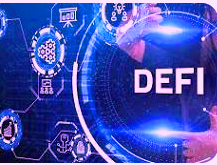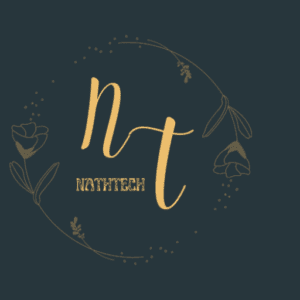NathTech’s Guide ,
Introduction :The Importance of Tokens and DeFi in the Crypto World
The world of cryptocurrency has been rapidly growing and evolving over the past
few years, and one of the biggest developments has been the rise of decentralized
finance (DeFi) and the importance of tokens within it. In this article, NathTech
explore why tokens and DeFi are so crucial to the crypto world.
 .
First,
.
First,
it’s important to understand what tokens are. In simplest terms,Tokens are
digital assets created on existing blockchain platforms, with Ethereum being the
most common. They can represent a variety of assets or utilities within their respective ecosystems:
- Utility Tokens: Used to access services within a platform (e.g., Chainlink’s LINK token).
- Security Tokens: Represent ownership or stakes in assets and are subject to securities regulations.
- Governance Tokens: Provide holders with voting rights on protocol decisions (e.g., Uniswap’s UNI token).
- Lending and Borrowing: Platforms like Aave and Compound enable users to lend their assets for interest or borrow against collateral.
- Yield Farming and Staking: Users can earn rewards by providing liquidity or staking tokens in DeFi protocols.
- Decentralized Exchanges (DEXs): Allow for the trading of cryptocurrencies without a central authority, exemplified by platforms like Uniswap.
on the other hand, is a movement within the cryptocurrency community
that aims to create decentralized financial systems that operate outside of
traditional banking institutions. These systems often leverage blockchain
technology and smart contracts to create trustless and transparent
financial interactions.
So,
why are tokens and DeFi so important? For starters, they offer a way to
democratize access to financial systems. Traditional banking institutions
often require a certain level of wealth or creditworthiness to access their
services, leaving many people without options for financial services. With
DeFi and tokens, anyone with an internet connection can participate in
financial transactions, regardless of their background or wealth.
Additionally,
DeFi and tokens offer increased security and transparency.Transactions on the
blockchain are immutable and transparent, meaning that they cannot be altered or
hidden once they are recorded. This level of transparency and security is
unmatched by traditional financial systems,which often rely on trust and
centralization.
Another important aspect of tokens and DeFi is their potential for
innovation. With the ability to create custom tokens and decentralized
applications, developers are able to experiment with new financial models
and protocols. This has led to the creation of innovative new platforms for
lending, borrowing, trading, and more.
Of course,
there are also risks associated with tokens and DeFi. The lack of regulation and
oversight can make these systems vulnerable to scams and hacks, and the volatility
of cryptocurrency prices can make investments in tokens risky. However, these
risks are no different than those associated with traditional financial systems and
investments.
In conclusion,
tokens and DeFi are crucial components of the crypto world.They offer a way to
democratize access to financial systems, provide increased security and
transparency, and enable innovation within the industry. As the world of
cryptocurrency continues to evolve, we can expect to see even more developments
in the realm of tokens and DeFi.
Understanding their functions, earning potential, and associated risks is crucial for
anyone looking to navigate this dynamic market. While each type of asset offers
unique opportunities and challenges, DeFi coins often present the most diverse
and lucrative earning avenues, albeit with higher risks. As the crypto ecosystem
continues to grow and innovate, these secondary coins will remain integral to its
development, offering new ways for users to engage with and benefit from
blockchain technology. 